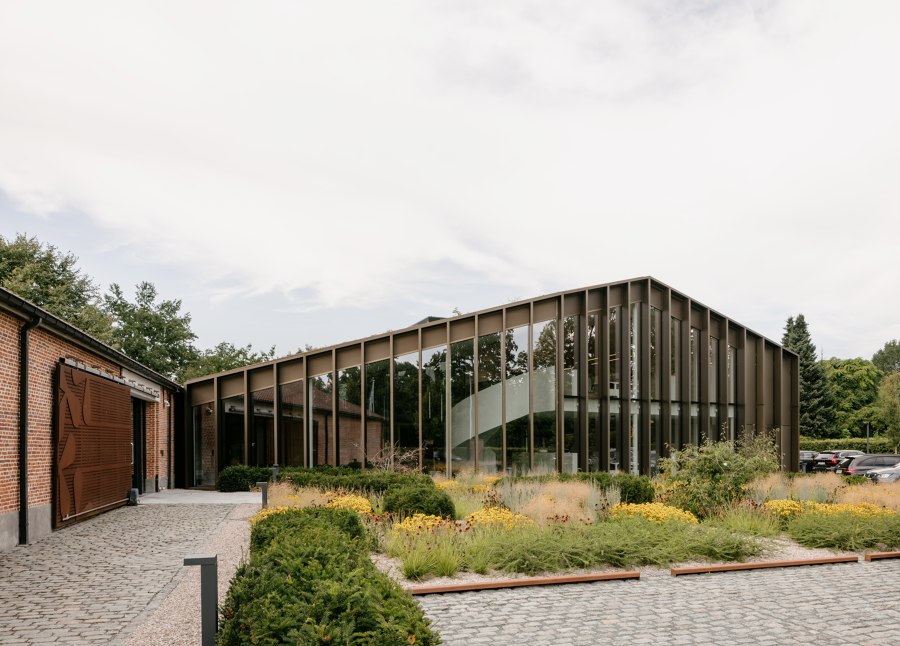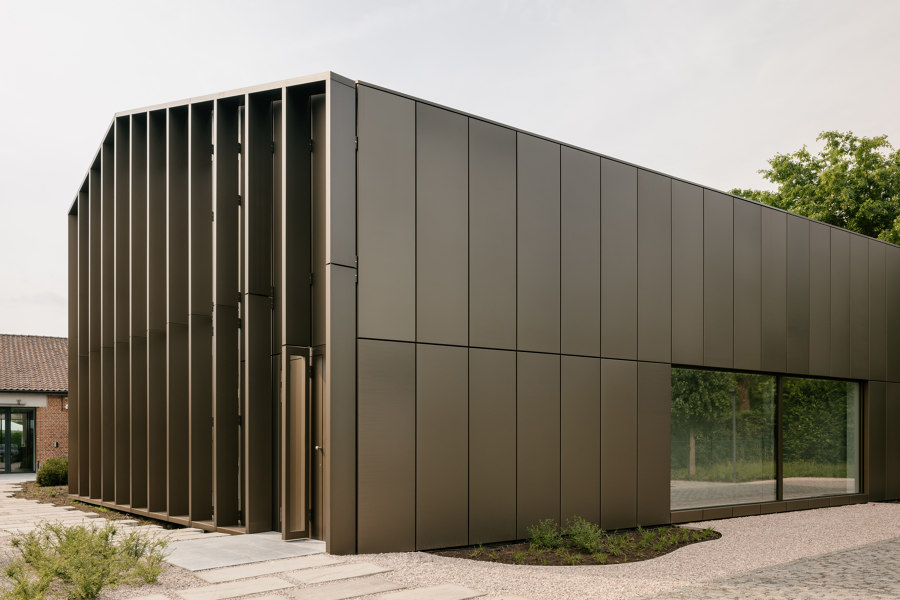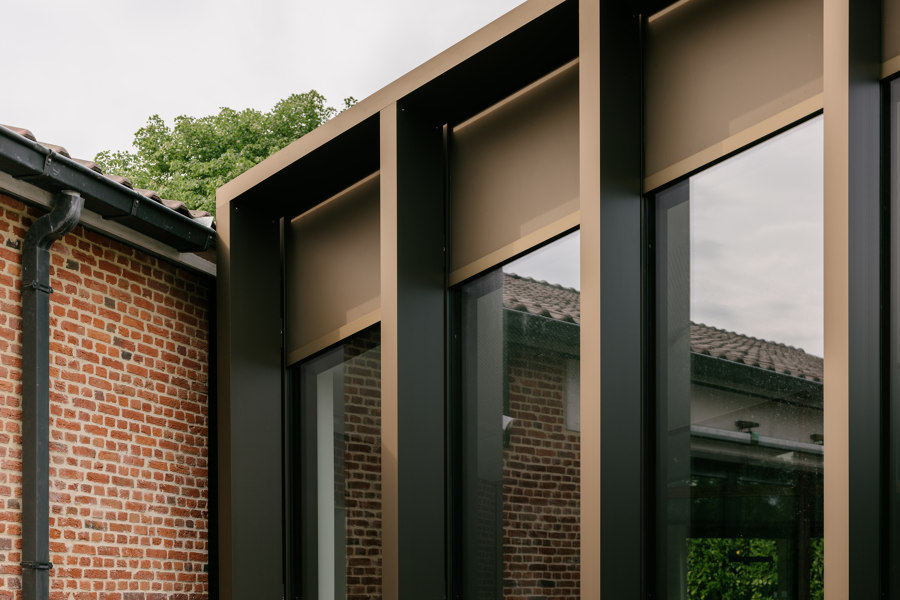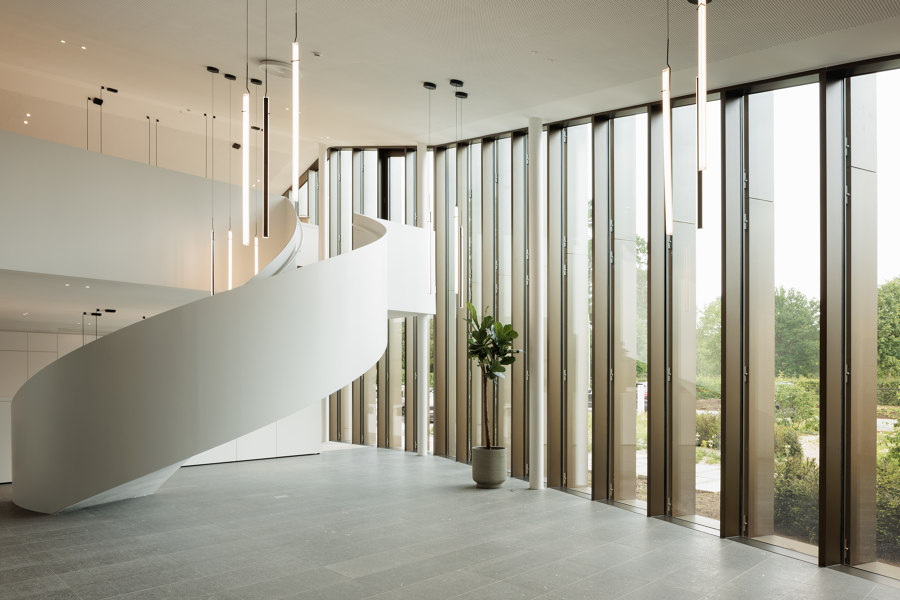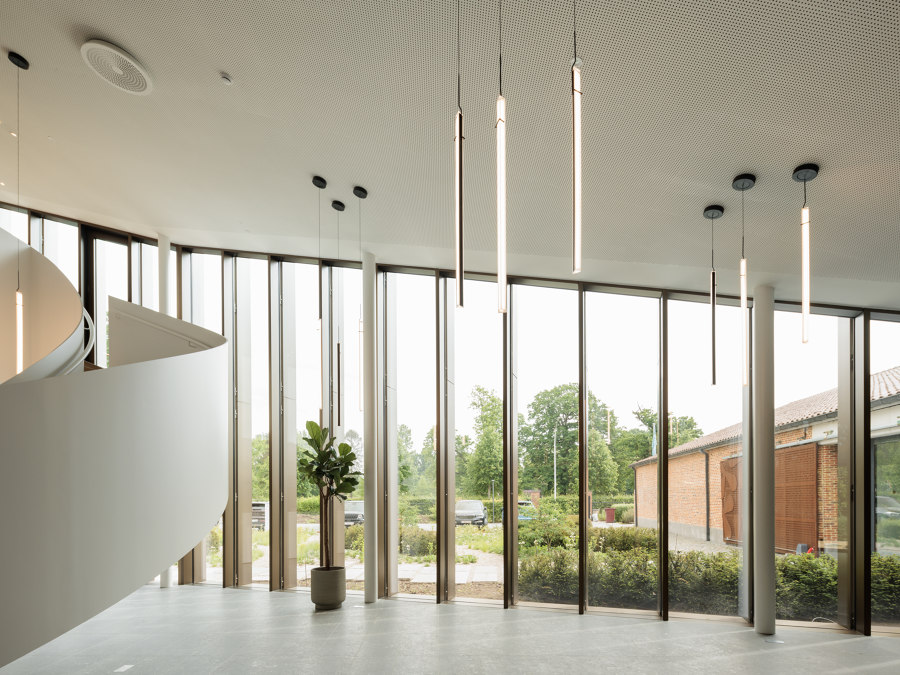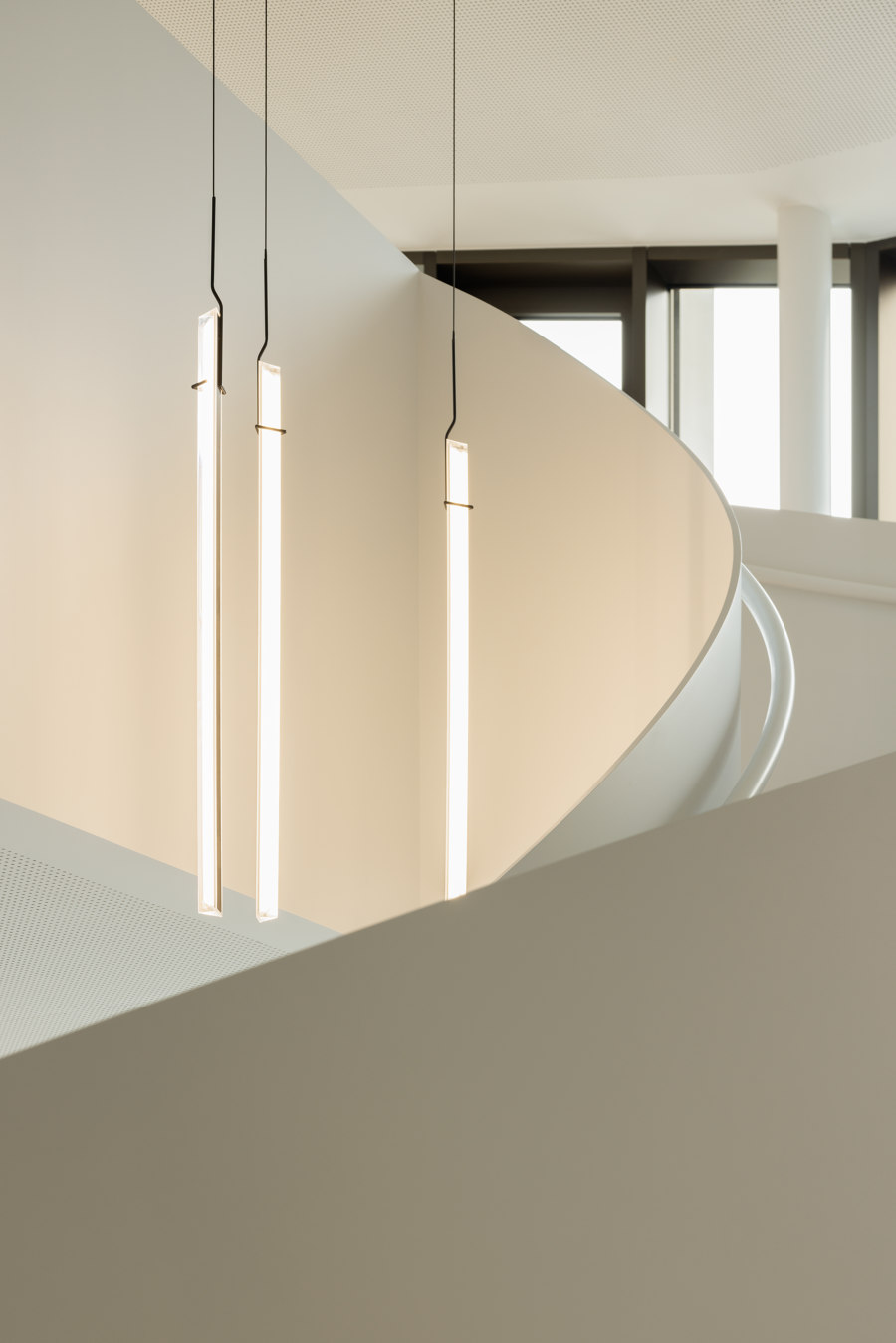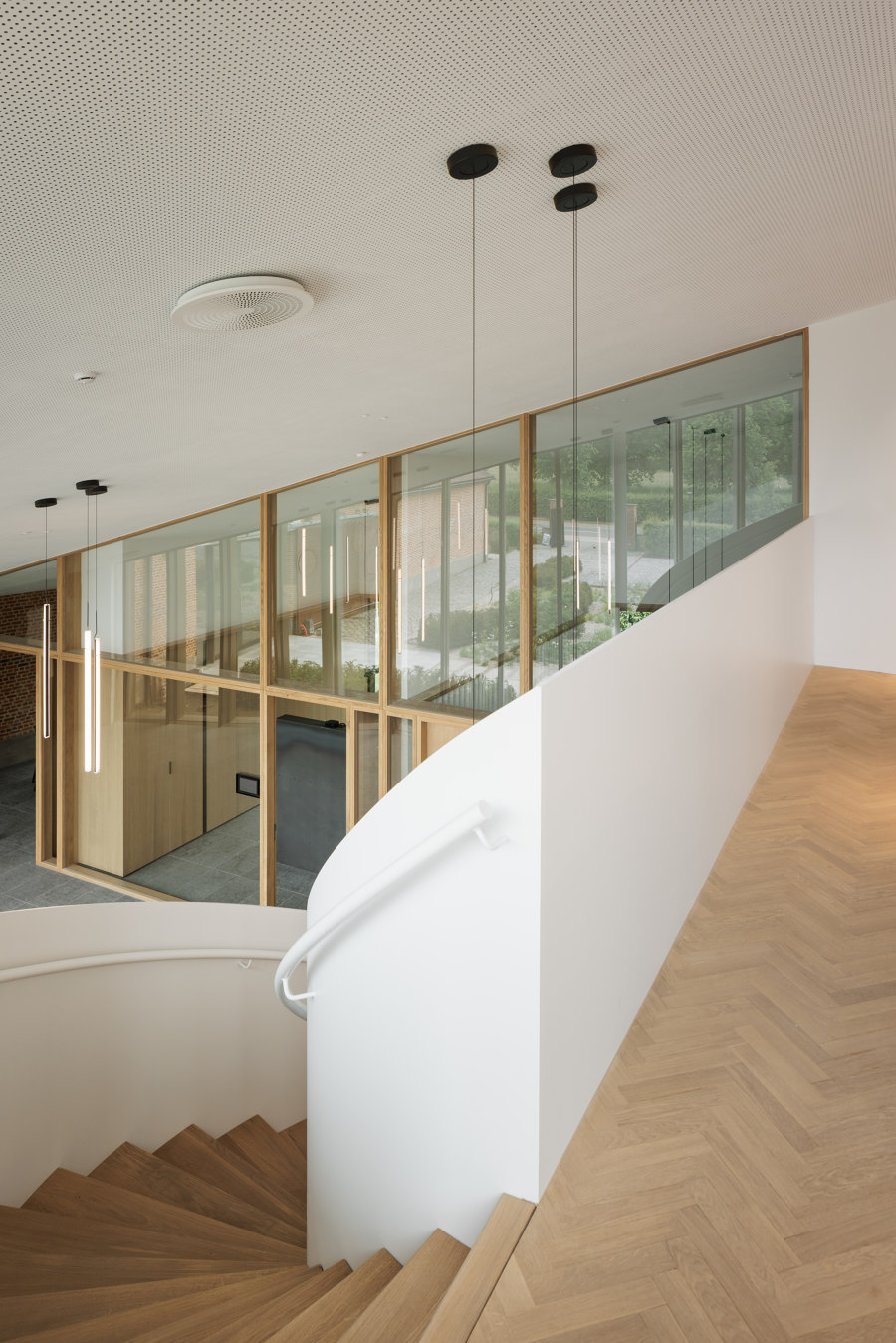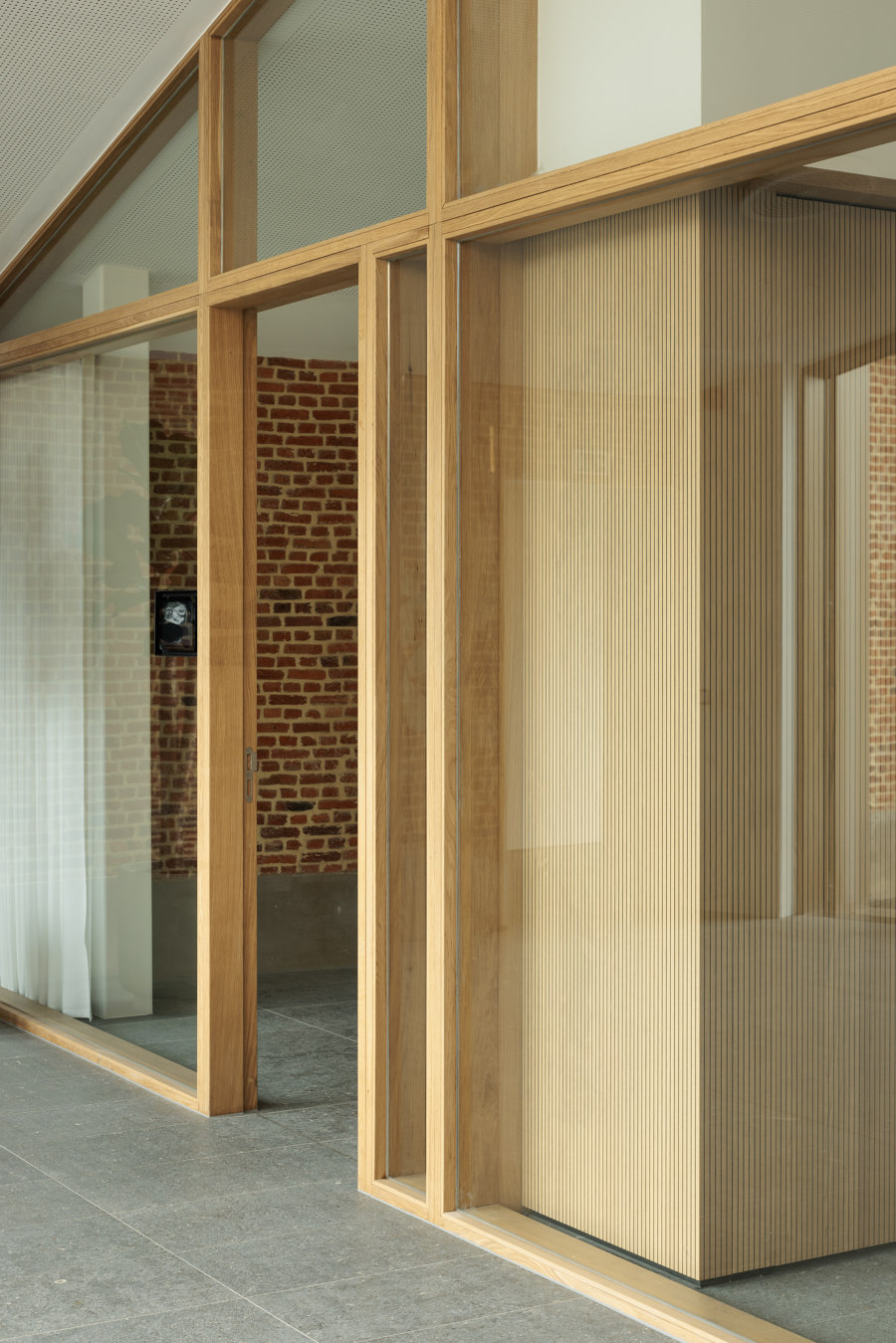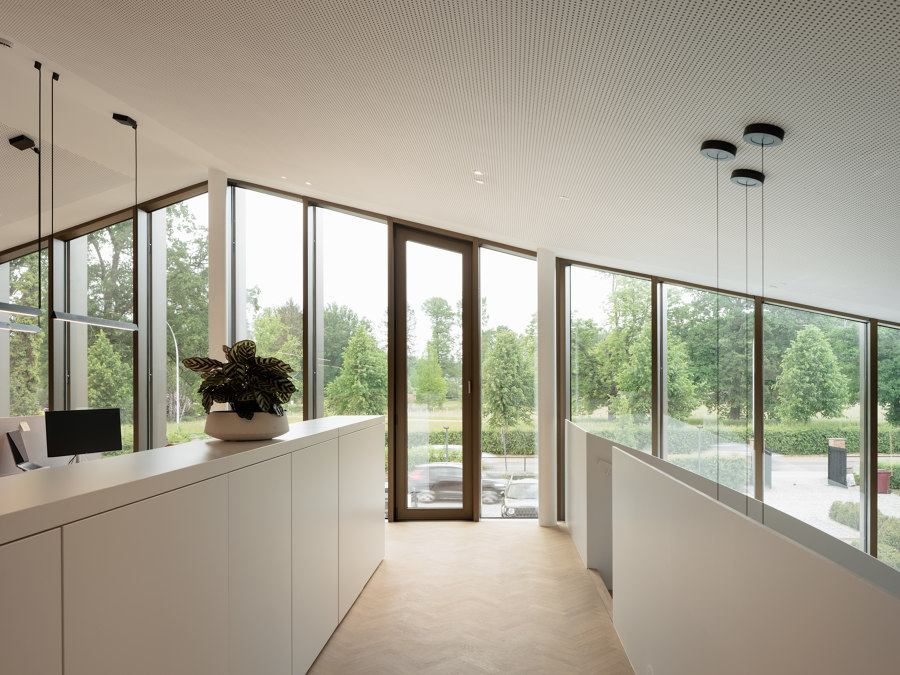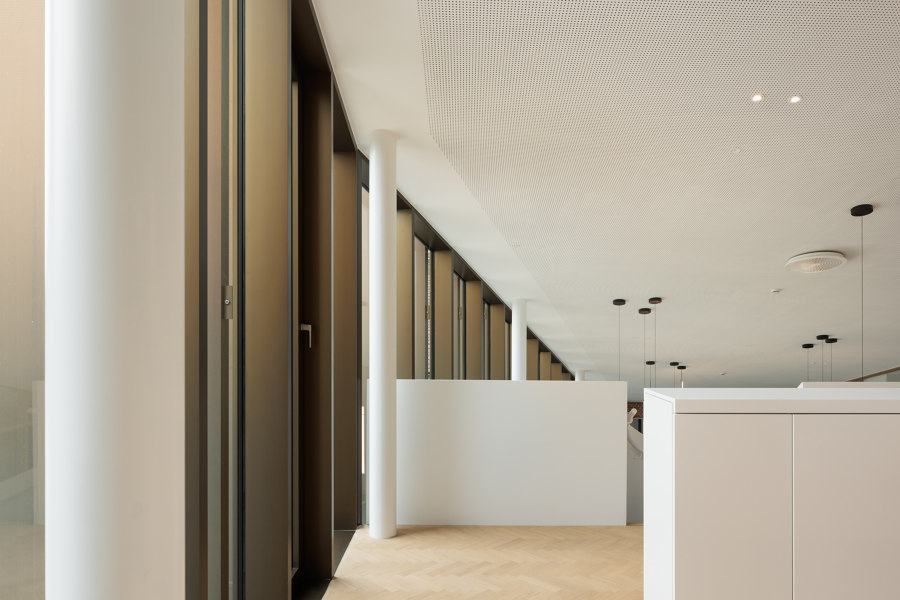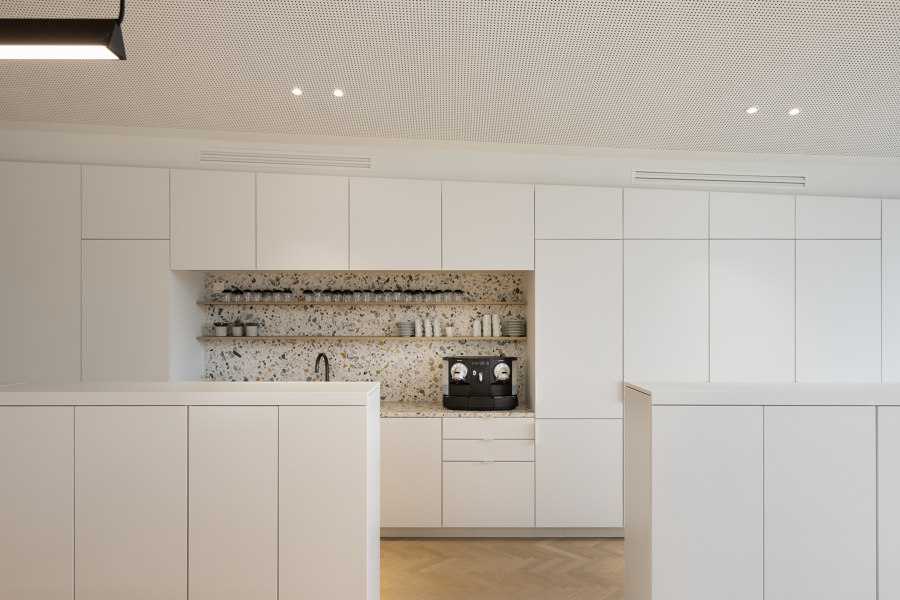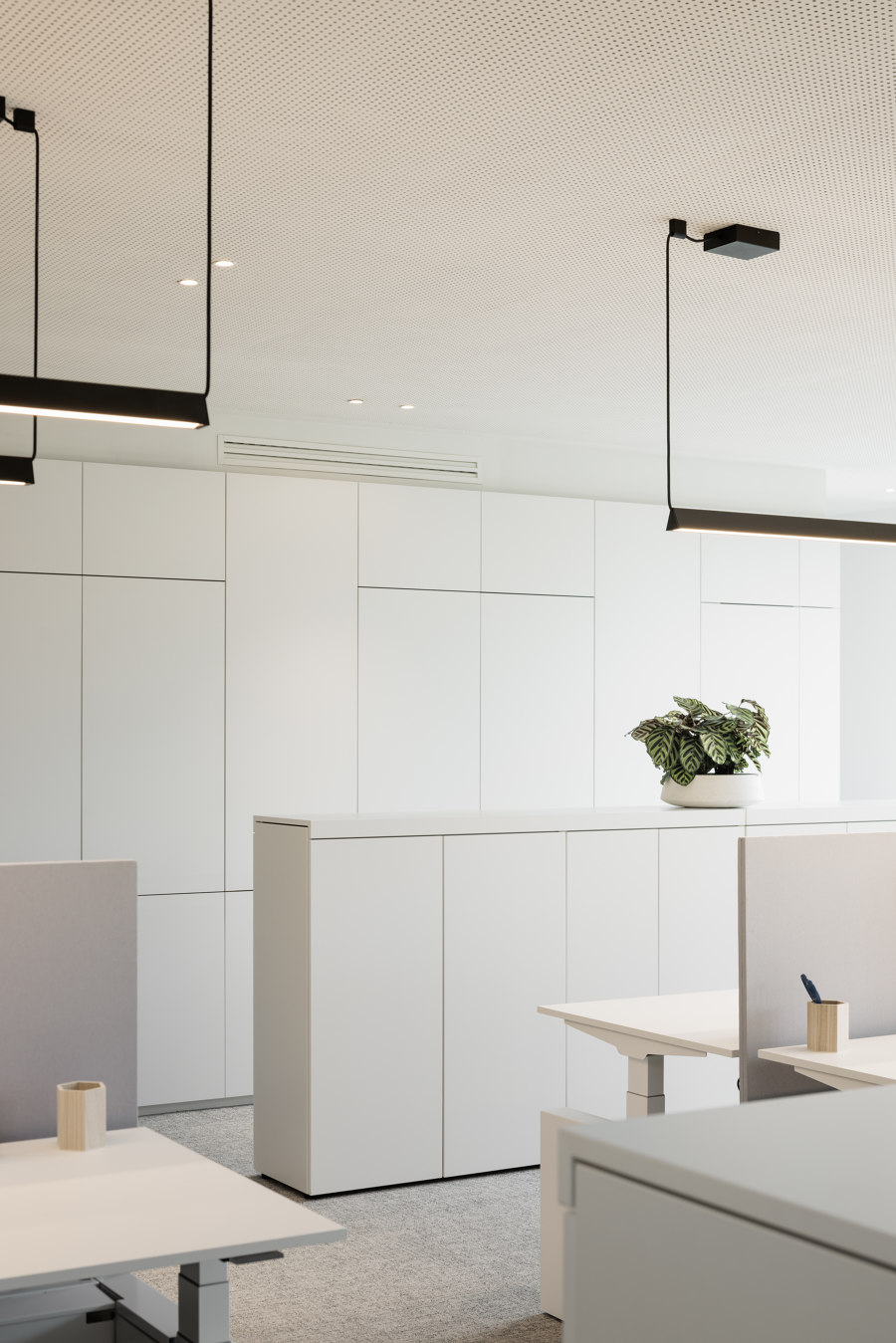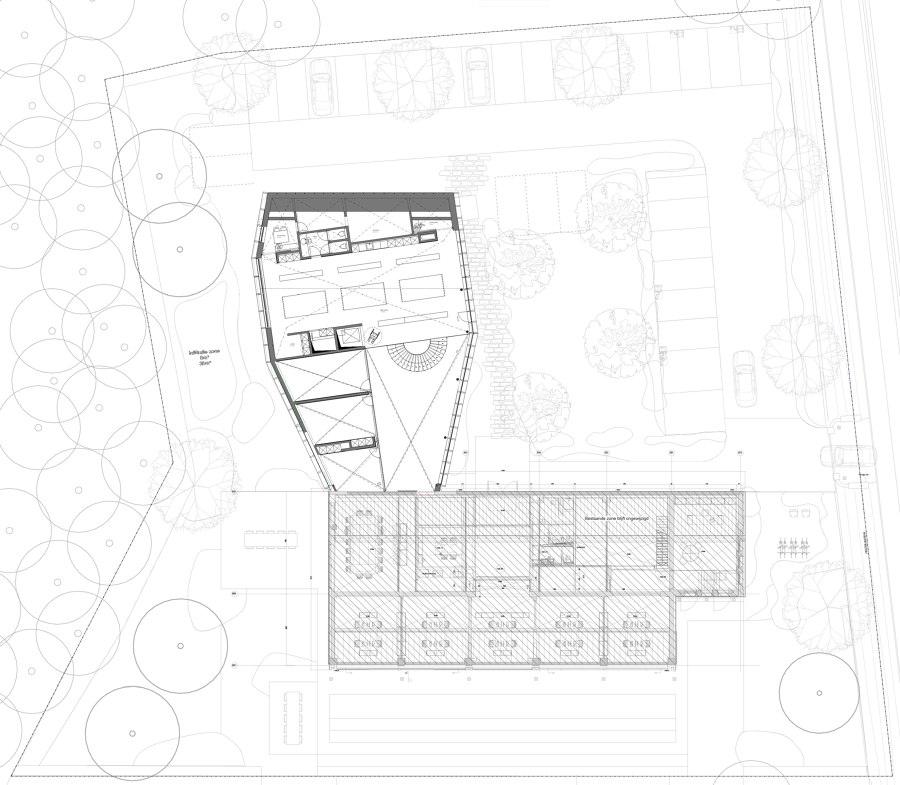Due to the strong growth of the company, the client wishes to realize an extension of the current office building of +/- 500m². With the realization of 20 additional workplaces and 4 additional meeting rooms, the capacity will be doubled. In addition, a bicycle shed, gym, and archive room will be provided in the basement. The building is equipped with an elevator, to ensure accessibility on the one hand, and to easily reach the basement level and archive space on the other hand.
The building is located on a very green street, adjacent to the park Vordenstein, and is situated on the edge of the built-up area of Schoten. The current building is a historic building, which used to serve as a coach house or horse stable. It stands freely on the plot and is highly visible from the street due to the open character at the front of the plot. Since the existing building has great historical value, we are looking for a way to preserve its visibility as much as possible. For this reason, we choose to plant the extension rather at the back of the plot. The idea here is to touch as little as possible the existing building, and only to realize the necessary connection between existing and new.
The choice is made to work on 2 levels, in order to limit the footprint of the building. By choosing an atypical gabled roof, a contemporary relationship with the existing building is sought. The gabled roof also makes the first floor smaller in surface area, again limiting the massiveness of the volume. The first floor is treated as a mezzanine, which creates extra spatiality and makes the typical shape of the shell strongly perceptible.
The existing building is characterized by a number of very typical elements. For example, the front facade of the building has a strong articulation through the bluestone drip strips and vertical masonry posts. The side facade, on the other hand, consists of a rough, closed masonry wall.
For the extension, the same ingredients are used and applied in a contemporary way. The front and rear facades of the building will be elaborated with tight vertical strips of anodized aluminum. This makes links with the articulated facade of the existing building but contrasts with it through the tightness and smoothness of the chosen material. The side facade will have a closed, but rather flat appearance through an elaboration with aluminum cassettes. This makes links with the existing side wall, which has a very closed character.
The permanent fixtures, loose furniture, and lighting are an integral part of the architectural brief. Special attention was paid to acoustic comfort through the use of perforated plasterboard, acoustic wood paneling, curtains, etc. The use of wood and fresh terrazzo tiles provide a warm touch throughout the building.
The goal is to achieve an energy-efficient building. With floor activation and ceiling activation, both heating and cooling can be provided at low temperatures. The roof will be completely fitted with a green roof and solar panels. A BEO field provides a sustainable source of energy. Finally, vertical slats in the facade provide natural shading at the front of the building.
Design Team:
Lead Architect: Mathias Lammens
Project Architect: Charles Krug
